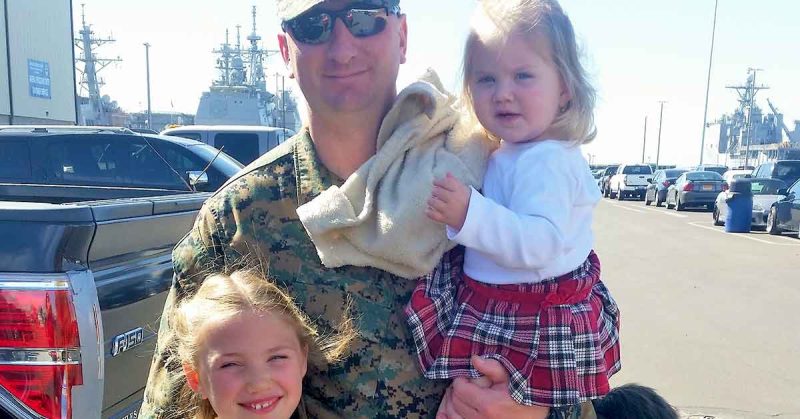When a service member prepares to go on a deployment, do a PCS move, or transition out of the military, they are required to go through several levels of discussions and counseling to make sure they are prepared. It makes sense to give the service member opportunities to discuss paperwork, ask questions, create a timeline of necessary tasks, and gain awareness of the various resources and organizations in place to support them through a major transition.
Military spouses and children rarely receive the same level of training to prepare for major life transitions. Sometimes, there is no formal support or program in place at all! This lack of preparation is unfortunate because military transitions affect the whole family, not just the service member. Too often, military spouses are left in the dark trying to navigate new challenges without much guidance or support.
When all the focus is on the service member’s career, their mission and their next step, military spouses and children can feel conflicted. On one hand, of course, they love their service member and want to support them in their career. Military spouses strive to keep things together at home so the military member can remain mission-focused. On the other hand, spouses and military kids going through a major transition often feel confused, overwhelmed or afraid of the unknown. Living far from family and moving away from friends means they don’t always have a support network to turn to during difficult times. Let’s look at some major military transitions and discuss support for family members during those times.
PCS Moves
Obviously, any PCS is a major transition. Whether you are relocating to another military assignment in the same base or on the other side of the world, it impacts every aspect of life for the service member and their family: job, housing, schools, friends, doctors, income opportunities, etc. It’s a lot to handle, both logistically and emotionally. Service members typically report to work shortly after a PCS move and have a built-in community of co-workers and potential friends. Although spouses and children may take months to feel settled or connected to their community.
How to support military family members during a PCS transition:
- Assist with research about the new base and area. Answering questions will help reassure them about facing an unknown town or school.
- Offer a helping hand. Whether it is a few hours of childcare or assistance cleaning out the garage, family members will appreciate any help they can get.
- Allow them to unpack their emotions. PCSing can have exciting or sad moments. While families are told to, “See moving as an adventure,” many spouses go through stages of grief. It’s okay to be excited and terrified at the same time, so let them express themselves and validate their feelings.

Deployments
Of course, deployments are a complex event for service members, one they often spend months training or preparing for. They may be focused on their gear, their communication options and the mission ahead of them.
For the family members who remain at home, deployment brings many different challenges. A spouse with children must juggle all the responsibilities of parenting alone, often without any consistent support from family members. A military spouse without children might struggle with a grueling schedule of work and school, or they may experience long periods of loneliness or anxiety.
How to support military family members during a deployment transition:
- Offer tangible support. Instead of saying, “Let me know if you need anything,” try offering help with a specific task, like carpools, mowing the lawn, or a meal. This is easier to accept because it’s less for the military spouse to think about and coordinate.
- Be a travel buddy. Many military families try to use deployment to take trips or explore their local area, but it can be lonely to do solo and difficult to do with kids. If you have an adventurous spirit, join in the fun!
- Encourage counseling. Deployment is a difficult season, and everyone struggles on some days. For military spouses or children having a hard time during deployment, let them know Military OneSource offers free and confidential counseling to get them through this time.
Retirement/ Transition
Whether the service member retires from the military after 20-plus years or transitions out after fulfilling a shorter contract, it’s a major life change for everyone. Not only will the service member and spouse have to navigate new jobs and a different household budget, but there are all the usual PCS decisions to make about housing, vehicles, storage and schools.
After a long military career, the entire family has usually adapted to the military community by making friends on the base, attending unit events and finding fulfillment in a military identity. After the service member leaves or retires, all those lifestyle perks go away. Families often report feeling confused and overwhelmed within the first few months after this transition.
How to support military family members during the end-of-service transition:
- Provide closure. Be sure to recognize spouses and children at any retirement or farewell event. They play an important role in supporting the service member’s career.
- Listen to their dreams. Every family has a different vision of their post-military life. Some enjoy staying connected to the military community, while others immediately establish themselves elsewhere. Before offering advice, always listen to the spouse or military child’s goals.
- Assist with career transition. For many military spouses, their service member’s retirement is their first real opportunity to define their own career. Share resources or programs that help with mentoring, resume writing and professional development.
Whatever transition your military family is facing, know that you don’t have to go through it alone! Any transition is difficult and stressful for the entire family, so spouses and children need support throughout the process. The counselors at Military OneSource are an excellent resource during times of transition.





